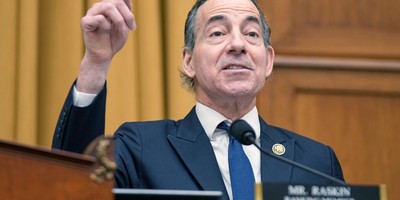After the Drug Enforcement Administration announced an "emergency" ban on kratom at the end of August, a spokesman for the agency said "our goal is to make sure this is available." The spokesman, Melvin Patterson, also told The Washington Post kratom does not belong in Schedule I of the Controlled Substances Act, the law's most restrictive category, even though that is where the DEA had just put it.
Patterson added that kratom, which the DEA says has "no currently accepted medical use," is "at a point where it needs to be recognized as medicine." Confused? You're not alone. The DEA's ban on kratom, a pain-relieving leaf from Southeast Asia, shows how blithely and arbitrarily the government interferes with our freedom to control our own brains and bloodstreams.
Kratom, which acts as a stimulant or a sedative, depending on the dose, has been used for centuries in countries such as Thailand, Malaysia and Indonesia to ease pain, boost work performance, and wean people from opiate addiction. In recent years the drug has gained a following in the United States, sold by online merchants and head shops as an herbal medicine, dietary supplement or legal high.
That situation offended the DEA, which noted in the explanation of its ban that kratom had never been approved by the government for any use. If a psychoactive substance is not explicitly permitted, the DEA figures, it should be prohibited.
The agency apparently was surprised by the backlash against its kratom ban, which included angry phone calls to Capitol Hill, a demonstration near the White House and letters from members of Congress. The DEA still intends to finalize the ban, although it did not take effect last Friday as expected.
Patterson, the DEA spokesman, said the reaction to the ban "was eye-opening for me personally." He added that "I want the kratom community to know that the DEA does hear them."
Recommended
That attitude is quite a contrast to the deaf arrogance the DEA displayed when it announced that it was temporarily placing kratom in Schedule I, a classification that lasts at least two years and could become permanent. Declaring that a ban was necessary "to avoid an imminent hazard to public safety," the DEA summarily dismissed kratom's benefits while exaggerating its hazards.
The DEA describes all kratom use as "abuse." It was therefore easy for the agency to conclude that the plant has "a high potential for abuse," one of the criteria for Schedule I.
Since the DEA assumed there was no rational, morally acceptable reason to use kratom, it did not need to muster much evidence that the drug is intolerably dangerous. It claimed there have been "numerous deaths associated with kratom," by which it meant 30. In the whole world. Ever.
According to the U.S. Centers for Disease Control and Prevention, alcohol causes about 88,000 deaths a year in this country, while 28,000 deaths were attributed to heroin and opioid painkillers in 2014. Kratom looks pretty benign by comparison.
Another point to keep in mind: "Deaths associated with kratom" are not necessarily caused by kratom. "Kratom is considered minimally toxic," noted a 2015 literature review in the International Journal of Legal Medicine. "Although death has been attributed to kratom use, there is no solid evidence that kratom was the sole contributor to an individual's death."
As further proof of kratom's dangers, the DEA noted that "U.S. poison centers received 660 calls related to kratom exposure" from 2010 through 2015, an average of 110 a year. By comparison, exposures involving analgesics accounted for nearly 300,000 calls in 2014, while antidepressants and antihistamines each accounted for more than 100,000.
As the DEA's contrived kratom crisis shows, there is little rhyme or reason to the government's pharmacological taboos, which are driven by unreasoning prejudice rather than science. The one overriding theme is that people cannot be trusted to weigh the risks and benefits of drugs for themselves.

























Join the conversation as a VIP Member